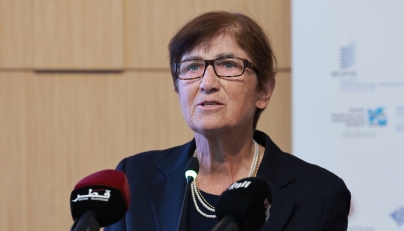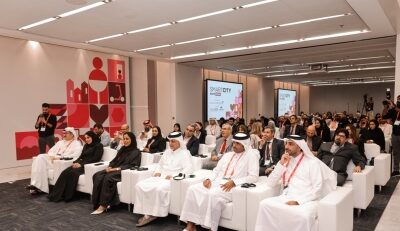Business
Qatar Leverages Intellectual Property to Fuel Economic Growth

Doha, Qatar: The protection of intellectual property (IP) and the use of alternative dispute resolution (ADR) are becoming increasingly important for fostering innovation and attracting foreign direct investment (FDI) in Qatar. This was highlighted by Dr. Susan L. Karamanian, Dean of the College of Law at Hamad Bin Khalifa University (HBKU), during the opening ceremony of the Conference on the Role of Alternative Dispute Resolution, Intellectual Property Protection, and Innovation in Advancing Foreign Direct Investment for Sustainable Development.
Dr. Karamanian emphasized that robust mechanisms for IP protection are essential for both innovation and effective dispute resolution. She noted that these alternative mechanisms not only streamline the resolution process but also alleviate pressure on the judiciary.
“This is a significant development because it facilitates dispute resolution, but it also means that the role of the judiciary may not be quite as pronounced as it once was,” she explained in an interview with The Peninsula.
According to Dr. Karamanian, safeguarding intellectual property is crucial for sustaining innovation and establishing Qatar as a prominent investment hub. “There are many inventors in this country, and they benefit from having their hard work protected. If someone can copy your invention tomorrow, what is the incentive to innovate?” she pointed out. This issue becomes even more pressing in a world where information can spread globally in seconds, increasing the risk of intellectual theft.
Sector-Specific Impacts and Opportunities
Dr. Karamanian particularly highlighted the energy sector as a vital area where strong IP protection can drive national growth. “Technology in the oil and gas sector is critical. The way it is protected can significantly contribute to Qatar’s growth, especially in alternative energy, which is essential for sustainability,” she stated.
While ADR mechanisms are already common in commercial disputes, Dr. Karamanian noted that IP disputes have traditionally been perceived as state matters. However, she pointed out that arbitration and mediation are gaining traction in this area. “We have disputes under license agreements that often include clauses for arbitration or mediation,” she added.
The broader economic implications of effective IP protection extend beyond individual inventors to entire industries. Dr. Karamanian referenced advancements in health and life sciences, specifically in precision medicine, as examples of how IP protection can yield societal benefits. “The work in health and life sciences, especially in precision medicine, is significant. It can lead to the creation of new companies and generate employment opportunities,” she explained.
Connecting Innovation, Investment, and Sustainability
By linking ADR and IP protection with innovation and investment, Dr. Karamanian underscored their importance to Qatar’s long-term vision for economic development. “The intersection of intellectual property, ADR, and sustainable development is central to enhancing Qatar’s position as a hub of innovation and investment,” she asserted.
The two-day conference aims to gather experts, policymakers, and stakeholders from around the globe to explore how ADR, intellectual property rights, and innovation can act as powerful forces in promoting sustainable economic development and attracting foreign direct investments.
As Qatar strives to position itself as a leader in innovation, the insights shared during this conference are likely to play a pivotal role in shaping its economic landscape for years to come.
-

 World2 weeks ago
World2 weeks agoPrivate Funeral Held for Dean Field and His Three Children
-

 Top Stories2 weeks ago
Top Stories2 weeks agoFuneral Planned for Field Siblings After Tragic House Fire
-

 Sports3 months ago
Sports3 months agoNetball New Zealand Stands Down Dame Noeline Taurua for Series
-

 Entertainment3 months ago
Entertainment3 months agoTributes Pour In for Lachlan Rofe, Reality Star, Dead at 47
-

 Entertainment2 months ago
Entertainment2 months agoNew ‘Maverick’ Chaser Joins Beat the Chasers Season Finale
-

 Sports3 months ago
Sports3 months agoSilver Ferns Legend Laura Langman Criticizes Team’s Attitude
-

 Sports1 month ago
Sports1 month agoEli Katoa Rushed to Hospital After Sideline Incident During Match
-

 World3 weeks ago
World3 weeks agoInvestigation Underway in Tragic Sanson House Fire Involving Family
-

 Politics2 months ago
Politics2 months agoNetball NZ Calls for Respect Amid Dame Taurua’s Standoff
-

 Top Stories2 weeks ago
Top Stories2 weeks agoShock and Grief Follow Tragic Family Deaths in New Zealand
-

 Entertainment3 months ago
Entertainment3 months agoKhloe Kardashian Embraces Innovative Stem Cell Therapy in Mexico
-

 World4 months ago
World4 months agoPolice Arrest Multiple Individuals During Funeral for Zain Taikato-Fox





















